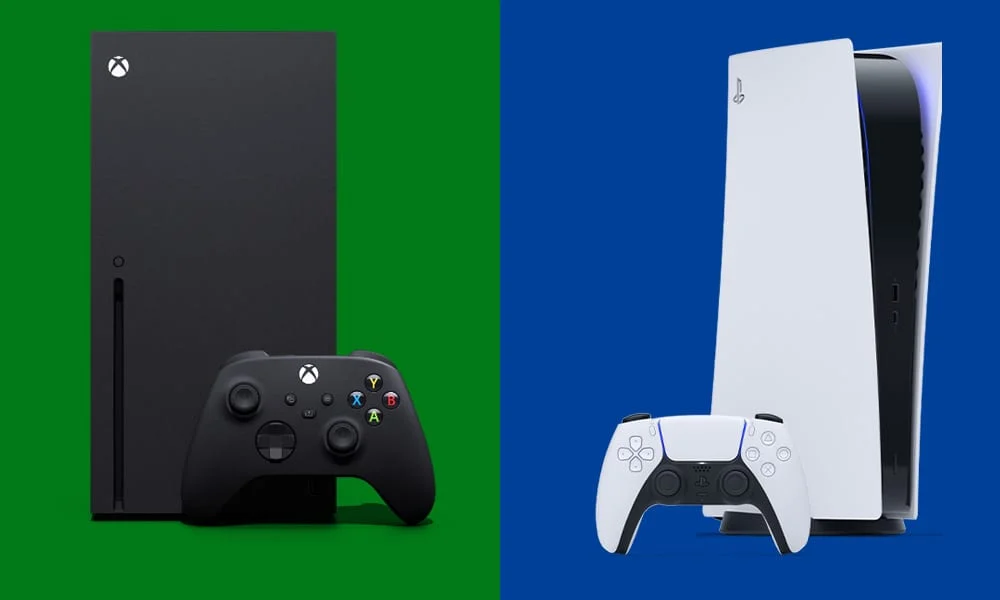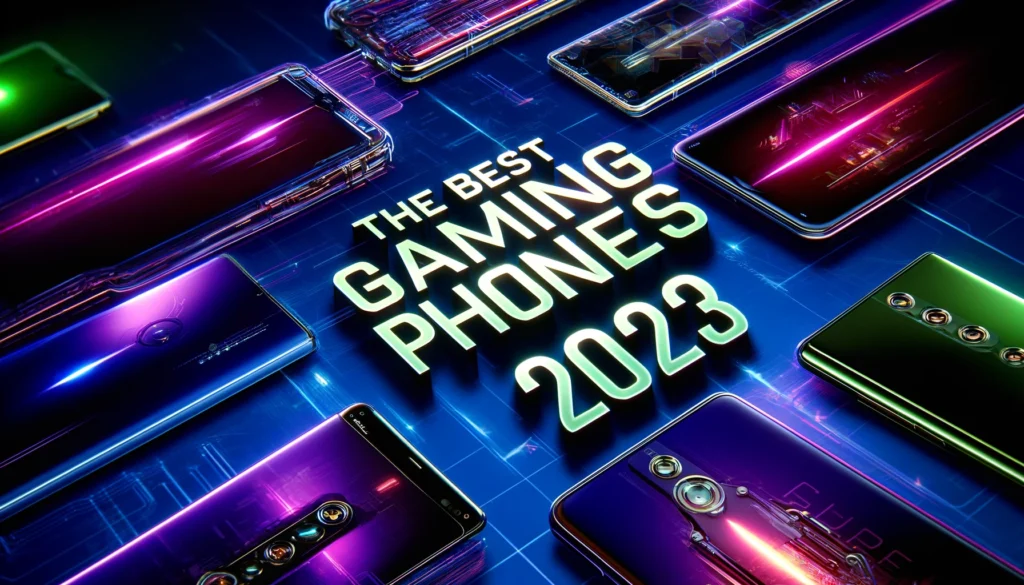
Choosing between the PlayStation 5 and the Xbox Series X can be daunting. Both consoles represent the pinnacle of gaming technology, but each offers unique features that might sway your decision. Whether you’re a seasoned gamer or a newcomer, understanding the differences between these two powerhouses will help you make an informed choice. In this article, we’ll dive deep into the features, performance, drawbacks, and pricing to help you decide which console suits you best: PlayStation 5 or Xbox Series X.
Introduction to the Next-Gen Consoles
The battle between PlayStation 5 and Xbox Series X has been one for the ages. These consoles launched in late 2020, and since then, they’ve been competing head-to-head in delivering the best gaming experience. The PlayStation 5 Xbox Series X rivalry isn’t just about games—it’s about the ecosystem, performance, and future-proofing your entertainment setup.
With similar price points and powerful specs, your choice might boil down to the finer details. Let’s explore these aspects further.
Performance and Specifications
When it comes to raw power, both the PlayStation 5 and Xbox Series X are beasts. However, each has its strengths that might appeal to different gamers.
- PlayStation 5: Sony’s console is equipped with a custom AMD Zen 2-based CPU and a GPU capable of 10.28 teraflops, with 16GB of GDDR6 RAM. The PS5’s standout feature is its ultra-fast SSD, which drastically reduces load times and enables rapid asset streaming in open-world games.
- Xbox Series X: Microsoft’s console slightly edges out in the power department with a 12 teraflop GPU and a similar AMD Zen 2-based CPU. It also has 16GB of GDDR6 RAM, but its SSD, while fast, doesn’t quite match the PS5’s speed. However, the Xbox Series X includes hardware-accelerated DirectX Raytracing and variable rate shading, offering superior graphics performance in some scenarios.
In practical terms, both consoles deliver smooth 4K gaming, with the Xbox Series X potentially offering a bit more in multi-platform titles due to its extra GPU power. However, the difference in performance is often marginal and might not be noticeable to the average gamer.

Game Library and Exclusives
One of the most significant factors in the PlayStation 5 Xbox Series X debate is the game library.
- PlayStation 5: Sony has long been known for its exclusive titles, and the PS5 continues this tradition. Games like Demon’s Souls, Ratchet & Clank: Rift Apart, and the upcoming Spider-Man 2 are just a few examples of titles you can only play on a PlayStation console. If you’re a fan of narrative-driven, single-player experiences, the PlayStation 5 offers some of the best.
- Xbox Series X: Microsoft has been investing heavily in its game studios, and the Xbox Series X benefits from this with games like Halo Infinite, Forza Horizon 5, and the upcoming Starfield. Moreover, Xbox Game Pass, a subscription service offering hundreds of games, is a major draw for the Xbox ecosystem. It provides incredible value, with new titles, including first-party exclusives, available on day one.
In summary, if you prioritize exclusive titles and cinematic gaming experiences, PlayStation 5 may be the better choice. However, if you value variety and a more budget-friendly approach to accessing a wide range of games, Xbox Series X with Game Pass could be more appealing.
User Experience and Features
When deciding between PlayStation 5 and Xbox Series X, it’s important to consider the overall user experience, which extends beyond just playing games.
- PlayStation 5: Sony’s DualSense controller is a game-changer. With haptic feedback and adaptive triggers, it offers a more immersive experience, especially in games that take full advantage of these features. The PS5 also has a new UI, which is streamlined and easy to navigate, though some users have noted that it takes a little getting used to.
- Xbox Series X: On the other hand, Xbox Series X sticks with the tried and true Xbox controller design, but with improvements like better ergonomics and a dedicated share button. The Xbox UI is consistent with previous generations, so if you’re upgrading from an older Xbox, the transition is seamless. Xbox also supports backward compatibility with a vast library of Xbox One, Xbox 360, and even original Xbox games, which is a huge plus if you have a collection of older titles.
Storage and Expandability
Storage is an important factor to consider, especially given the size of modern games. Both consoles have their own approach to storage and expandability.
- PlayStation 5: The PS5 comes with an 825GB SSD, which can fill up quickly with large game installs. However, Sony allows for storage expansion via an NVMe M.2 SSD slot. You can purchase a compatible SSD and install it to expand your storage, giving you more room for games and media. This flexibility is great, but it’s important to note that the cost of high-speed SSDs can be quite high.
- Xbox Series X: The Xbox Series X has a 1TB SSD, offering slightly more storage than the PS5. For expansion, Microsoft has partnered with Seagate to offer proprietary Storage Expansion Cards. These cards slot into the back of the console and provide additional storage with the same speed and performance as the internal SSD. While these cards are easy to use, they are relatively expensive compared to standard SSDs. Additionally, Xbox supports external USB drives, which can be used to store and play backward-compatible games.

Drawbacks to Consider
No product is without its flaws, and both the PlayStation 5 and Xbox Series X have a few drawbacks that are worth noting.
- PlayStation 5: One common criticism of the PS5 is its size—it’s a massive console, which can make it difficult to fit into some entertainment centers. Additionally, while the SSD is incredibly fast, its 825GB of storage can fill up quickly, especially with the size of modern games. While expandable storage is an option, it’s an added cost.
- Xbox Series X: The Xbox Series X, while powerful, has been criticized for its somewhat uninspired design. It’s also more focused on digital experiences, which might be a drawback for those who prefer physical media. The lack of exclusive launch titles at release was a notable downside, though the situation has improved over time.
Price Range and Availability
At the time of writing, both the PlayStation 5 and Xbox Series X are priced similarly, around $499 USD. However, availability can be an issue, with both consoles frequently selling out and sometimes only available at higher prices through third-party sellers.
- PlayStation 5: While the PS5 offers a digital edition without a disc drive for $399, it’s otherwise the same as the standard model. This might be an attractive option if you prefer to buy your games digitally and save $100 in the process.
- Xbox Series X: Xbox also offers a cheaper alternative in the Xbox Series S, priced at $299. However, this console is less powerful, targets 1440p gaming instead of 4K, and comes with less storage (512GB SSD). Still, it’s a great option for more casual gamers or those who don’t mind compromising on power for a lower price.
Availability and Pricing Variability: Console prices can fluctuate due to demand, region, and availability. During high-demand periods, such as holidays or following a major game release, prices might be higher or the consoles might be harder to find at retail prices. Regional pricing can vary, and potential buyers should be aware of import taxes or shipping costs.
When it comes to value, Xbox Series X might offer more bang for your buck, especially with Game Pass. However, PlayStation 5’s exclusives and innovative controller might justify the price for many gamers.
Updates and Future-Proofing
The gaming landscape is dynamic, and both consoles receive regular updates that introduce new features and improve performance.
- PlayStation 5: Sony has rolled out several firmware updates since launch, enhancing system stability, adding new features like 1440p support, and improving backward compatibility. The PS5 is expected to receive more updates as new technologies and game releases push the hardware further.
- Xbox Series X: Similarly, the Xbox Series X receives frequent updates that not only improve performance but also add features like FPS Boost, Auto HDR, and enhancements to backward compatibility. Microsoft’s commitment to iterative updates means that the Xbox Series X will continue to evolve, making it a solid choice for future-proofing your gaming setup.
Final Verdict: Which Should You Buy?
So, PlayStation 5 Xbox Series X—who comes out on top? The answer depends largely on what you value most in a gaming console.
- Choose PlayStation 5 if: You prioritize exclusive games, value a next-gen controller experience, and prefer a console with a more futuristic design.
- Choose Xbox Series X if: You want the most powerful console, prefer backward compatibility, and see value in Xbox Game Pass.
Both consoles are fantastic choices and offer incredible gaming experiences. Your decision should ultimately align with your gaming preferences and what you want most out of your console. No matter which one you choose, you’re in for a next-gen gaming experience that will keep you entertained for years to come.
Related Topics:

